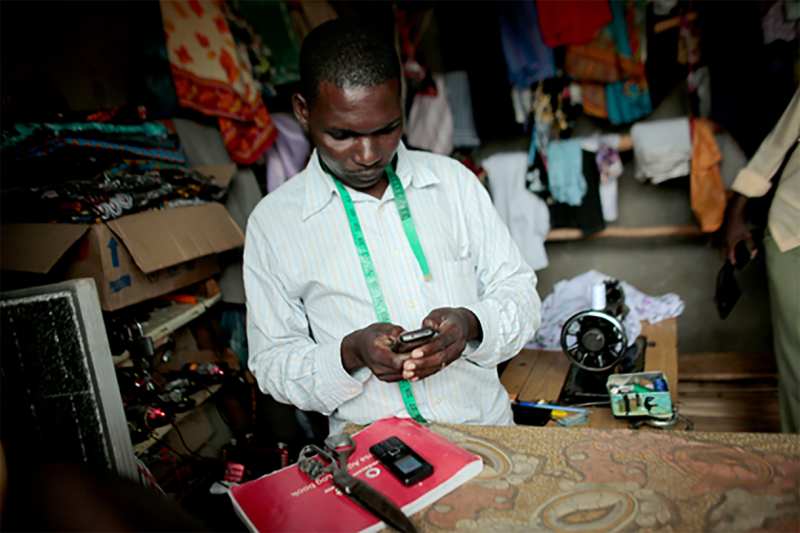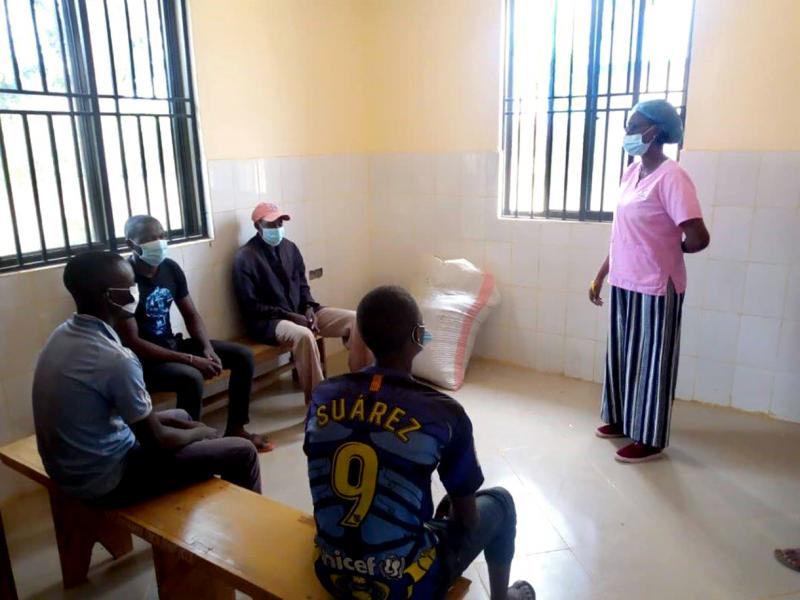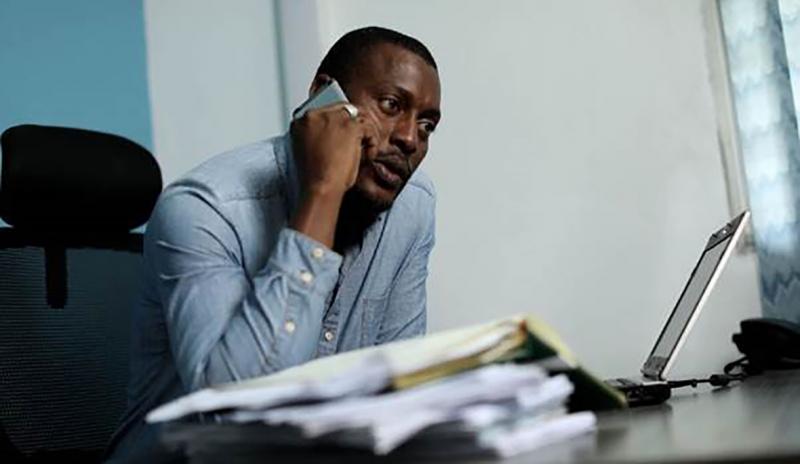Where We Work
See our interactive map


A community volunteer recruits clients interested in VMMC services in Ukerewe, Tanzania. Photo by Josh Estey for IntraHealth International.
How to keep high-quality prevention services available during a pandemic.
In Tanzania, the first case of COVID-19 was reported on March 16, 2020. When the country’s government instituted preventive measures to keep the disease from spreading, those same measures made it tougher to provide other services that can prevent a different infectious disease: HIV.
So IntraHealth International’s Tohara Plus team had to adjust.
The Tohara Plus project offers high-quality, safe voluntary medical male circumcision (VMMC) services to men in Tanzania—a procedure that reduces a man’s risk of acquiring HIV through heterosexual intercourse by about 60%. The onset of the pandemic required us to change our operational and programmatic approaches (and those of our partners, AFYA Plus and TAYOA) and find new ways to keep VMMC services available while also keeping clients, frontline health workers, and our staff safe.
About 1.4 million Tanzanians are living with HIV, or 4.7% of adults. Given VMMC’s effectiveness, the government is scaling it up as a critical HIV-prevention strategy in the country. Preventing new cases not only saves lives, it also reduces the burden on the country’s health workers who are providing HIV care and treatment to those who need it.
So to keep VMMC services available during the pandemic in the Lake Victoria regions where HIV prevalence rates are highest (Mwanza, Shinyanga, Simiyu, and Mara regions), IntraHealth developed a comprehensive mitigation and response plan, including adapting the existing systems in four new ways.
We worked with community volunteer agents and popular opinion leaders—trusted community members who are trained to discuss safe sexual behaviors—to disseminate the Tohara Journey mobile app. Clients can now be recruited for VMMC services using their mobile phone numbers and use the app to find service locations, make appointments, and access a range of information about VMMC.
The app counsels new VMMC clients through three stages (which we developed using a human-centered design). It also provides thorough counseling and instructions on post-operative wound care, mandatory post-operative follow-up visits, and—for VMMC clients who have tested positive for HIV—how to enroll in care and treatment centers.
If clients experience difficulties using the mobile app and SMS platform, our trained volunteers and health workers are available to help. There is also a free one-on-one call-in service to help clients throughout the VMMC process.

A VMMC service provider during a group counseling and health education session at the VMMC site in Shinyanga, Tanzania. Photo by Joel Andwilege for IntraHealth International.
Our VMMC outreach campaigns generally attract big gatherings, so we had to suspend them due to the pandemic. This meant we needed to make the most of static facilities. So we operated even on the weekends to cater to working men and used static satellite sites to minimize congestion at other sites, using a pre-booking system to space client appointments and eliminate congestion at the health facility.
We also focused on recruiting clients 18 years and older to limit the spread of COVID-19 in these facilities. While PEPFAR guidance on circumcising clients recommends VMMC for men 15 years or older, we do not focus on clients between the ages of 15 and 17 because it requires minors’ parents or guardians to join them at the facility to provide consent, which leads to greater congestion. However, any boys 15-17 years who show up for VMMC services are not denied care.
To allow men to access VMMC services immediately, we started discussing VMMC with male clients who were already at the health facility receiving other routine medical services. We also placed clients who are interested but not ready on waiting lists and contact them to set their appointments later.

ToharaPlus uses mobile phones and other platforms for mentorship sessions, monitoring and evaluation, and reporting, as well as providing clients with guidance before and after appointments. Photo by Josh Estey for IntraHealth International.
Even before COVID-19, men were showing up in small numbers, partly because of the behavioral barriers that prolong their decision to receive the procedure (such as concerns about loss of income during the healing period, anticipated pain from the procedure, and shame). IntraHealth adapted a human-centered approach, which emphasizes solutions rather than problems, to fit community members’ needs.
To do this, IntraHealth:
We also ensure health worker and client safety throughout the VMMC process by:
These strategies have helped keep VMMC services available after the closure of large-scale campaigns. Between March and September 2020, 29,487 clients received VMMC services. While this is just 16% of the 186,014 clients who have been circumcised this year, it has helped the project achieve 117% of its annual target to reach 159,146 adolescents and adult men through IntraHealth-supported health facilities in Mwanza, Shinyanga, Simiyu and Mara regions.
IntraHealth’s Tohara Plus Project leads a consortium that includes two local partners—the Tanzania Youth Alliance (TAYOA) and IntraHealth’s local affiliate, AFYA Plus. It is funded by the US Centers for Disease Control and Prevention under the President's Emergency Plan for AIDS Relief.
Get the latest updates from the blog and eNews




